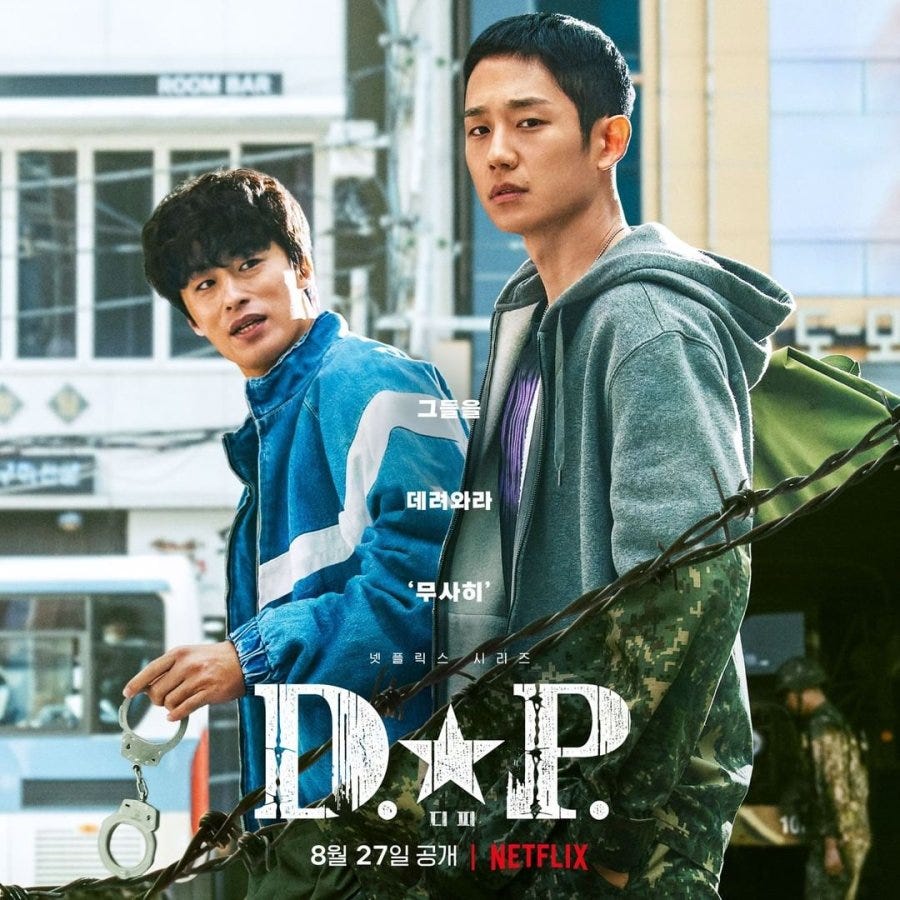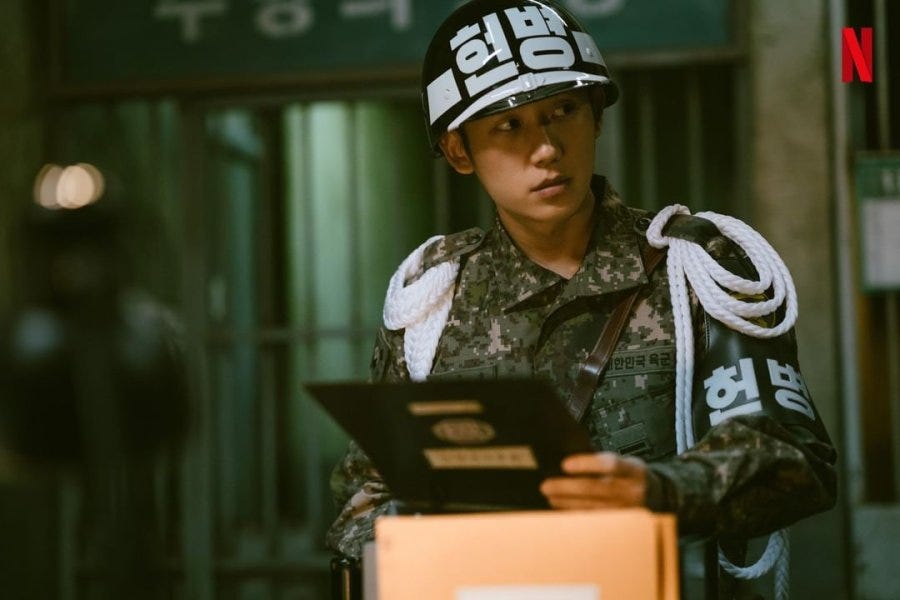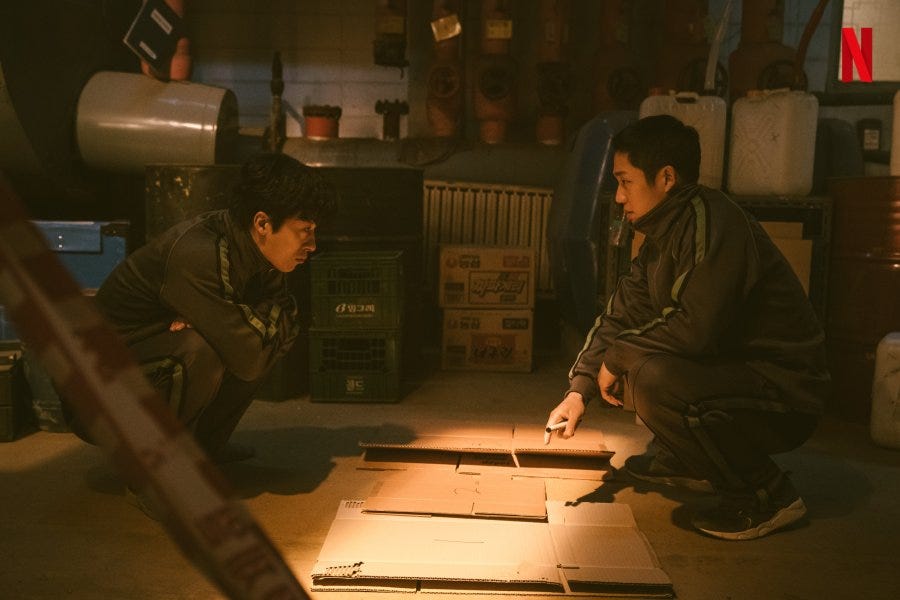D.P. (2021) A Review
In the last 2 years I’ve noticed a distinct trend in K dramas and it’s the persistent highlighting of bullying in all kinds of social contexts. In recent memory the phenomenon has been front and centre in almost every K drama that I’ve watched in the past 12 months so I can only presume that this has become an endemic hot button issue for the nation which is now a matter for public debate.
D.P., which stars the immensely likeable Jung Hae-in, is a devastating and brutal exploration of human rights abuses within the armed forces of South Korea. The feeling that one is left with from these short haunting six episodes is that this is merely the tip of an iceberg with far reaching consequences. Bullying exists there not only because it is condoned but because it is a mechanism of control deployed by the hierarchy to ensure that the rank and file know their place and toe the line. It all begins at the top and filters down to the lowliest newcomer with the tacit approval of their superiors. Everyone knows what’s going on but nobody feels any immediate need to rock the boat. Or even to speak about it. (Remember A Few Good Men?) Systemic bullying apparently is justified as part of the army’s regime to “toughen up” the lads especially those wet behind the ears and maintain strict discipline. However, it soon becomes clear that once these moral and ethical lines are crossed, something happens inside the human soul… something irreparably injurious occurs — a place from which there is no return.
Jung Hae-in plays Ahn Jun-ho recently recruited by his military masters to track down deserters. He is paired up with Han Ho-yul (Koo Kyu-hwan) who is in part the welcomed comic relief of this bleak cityscape of guilt and abject injustice. Their camaraderie of opposites is pleasing to watch as they navigate the complexities of the jobs with which they have been tasked. The duo are assigned specific cases of conscripted men who overstay their leave or do a runner one fine evening over the barbed wire fence when no one is watching. Each assignment comes with a story palpable with emotions — a combination of the humourous, heartwarming, harrowing and ultimately tragic. Life in the barracks is like a thoughtful war film except that the mob running the concentration camps are your compatriots. Bullying is pure mental torture and escape comes only when you are discharged. Here the showrunners are not content just with critiquing the armed forces but the entirety of South Korean society intimating more than once that the abuses in the barracks are a spillover of the dysfunctionality in society at large.
Throughout this journey we watch the gradual honing of Jun-ho’s skills as a detective and a tracker. There are material perks to the job ie. extended leave which is why he put his hand up for it. For the most part he believes his job to be a necessary evil. It’s a dereliction of duty to escape one’s military service of course. Until that is… the final mission that makes him question everything.
For the most part this show is difficult to watch because of the viewer’s position as the helpless onlooker. On top this are the procession of perpetrators, stark displays of violence and the relentless abuse of power that’s both mentally and physically exhausting. I can’t imagine a revisit in the near future although I’m up for the second season to see where Jun-ho’s trajectory finally takes him. It’s a show that invites a shared anger at how such atrocities could occur in a so-called modern civilized society and why these human rights abuses are still accepted practice on such a scale when there’s supposedly increased political liberty.
D.P. is easily one of the best K dramas ever made and it is a veritable masterclass in visual storytelling. Dialogue is kept to the essentials. Instead the show relies on close-ups of faces and objects to intensify the emotions within the narrative and let the performances and mise en scene do the heavy lifting. Action, they say, speaks louder than words and there’s plenty of that here: travelling, running, fighting, punching, kicking. And then comes the crying to bring it all home when an out-of-control situation turns ugly and made worse by hubris.
There’s little doubt that all of this is calculated… and guaranteed to leave the viewer with a lingering sense of unease for a long time to come.
The show also features Son Seok-koo and Kim Sun-kyun as key players within Jun-ho’s chain-of-command.





